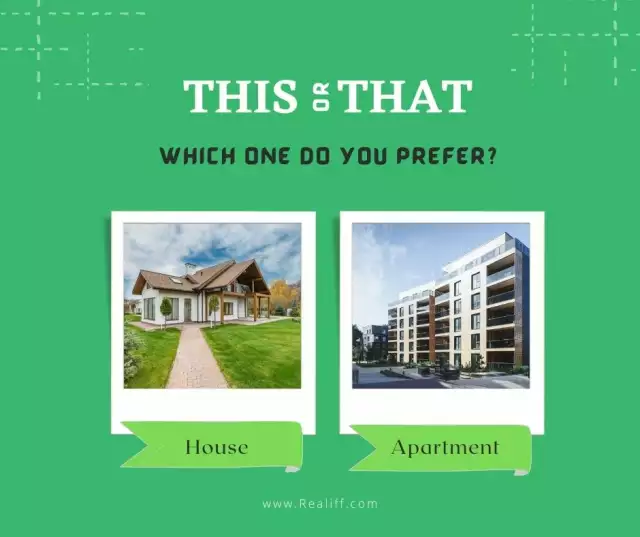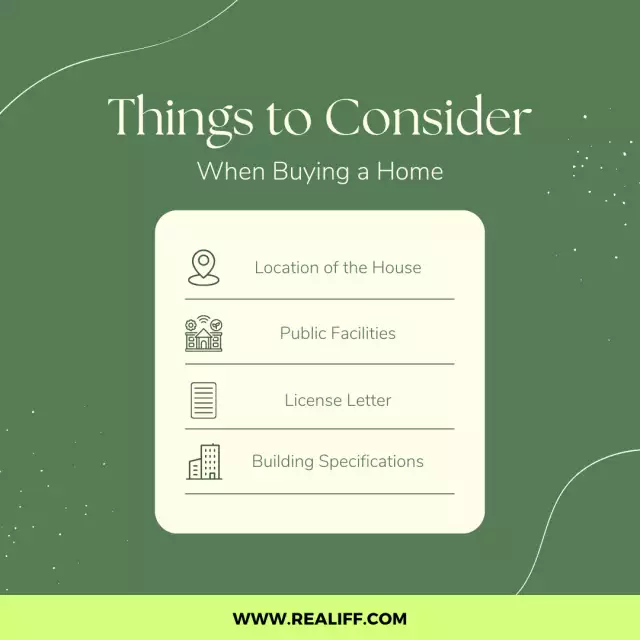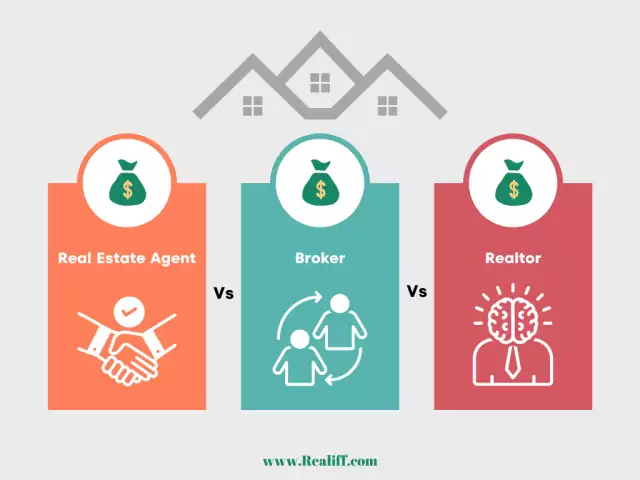The Ultimate Guide to Choosing Between a House and an Apartment
The Ultimate Guide to Choosing Between a House and an Apartment
Purchasing your first home is a monumental step, filled with excitement, challenges, and a multitude of decisions. One of the most significant choices you'll face is deciding whether to buy a house or an apartment. This decision is influenced by various factors type comes with its own set of advantages and drawbacks. Understanding these can help you make a well-informed decision that aligns with your long-term goals. In this comprehensive guide, we’ll explore the pros and cons of buying a house versus an apartment, delve into the financial implications, discuss lifestyle preferences, and examine long-term investment potential. By the end, you’ll be better equipped to decide which type of property suits your needs best.
The Pros and Cons of Buying a House
Pros of Buying a House
More Space:Houses typically offer significantly more living space than apartments. This extra room can be a blessing for families, those who enjoy hosting guests, or individuals who simply appreciate having more breathing space. Houses often come with additional rooms such as basements, attics, or home offices, providing flexibility to adapt to changing needs over time.
Private Garden:One of the most appealing aspects of owning a house is having a private garden. This outdoor space is perfect for gardening, recreational activities, or simply enjoying nature. For families with children or pets, a garden can be an invaluable addition, offering a safe and private area for play and relaxation.
Flexibility and Customization:Homeowners have the freedom to modify and renovate their properties without seeking approval from landlords or property management companies. This autonomy allows you to tailor your living environment to your tastes and needs, whether that means adding a new room, remodeling the kitchen, or creating an outdoor entertainment area.
Privacy:Houses generally provide more privacy and superior sound insulation compared to apartments. With fewer shared walls and spaces, you are less likely to be disturbed by neighbors. This seclusion is ideal for those who value peace and quiet or enjoy activities that require a bit more space and privacy, such as practicing a musical instrument.
Investment Potential:Historically, houses have a higher appreciation rate than apartments. This is partly due to the value of the land on which the house is built, which tends to increase over time. Owning a house can be a smart financial move, potentially offering significant returns on investment and providing a stable asset that appreciates in value.
Cons of Buying a House
Higher Costs:Purchasing and maintaining a house can be more expensive than buying an apartment. The initial purchase price is typically higher, and ongoing costs such as property taxes, insurance, and maintenance can add up. Prospective buyers need to budget carefully to account for these additional expenses.
Maintenance Responsibilities:Owning a house means taking on the responsibility for all maintenance tasks. This can include everything from routine upkeep like lawn care and gutter cleaning to more significant repairs like roof replacement or plumbing issues. These tasks can be both time-consuming and costly, requiring homeowners to invest time, money, and effort into maintaining their property.
Higher Utility Bills:Larger living spaces generally lead to higher utility bills. Heating, cooling, and lighting a house can be more expensive than an apartment, especially in areas with extreme weather conditions. Homeowners should consider energy-efficient upgrades to help manage these costs.

The Pros and Cons of Buying an Apartment
Pros of Buying an Apartment
Affordability:Apartments are often more affordable to purchase and maintain than houses. The lower entry cost makes them an attractive option for first-time buyers or those with limited budgets. Additionally, ongoing maintenance and repair costs are usually lower, as many tasks are handled by the building’s management.
Lower Maintenance:One of the significant advantages of apartment living is the reduced maintenance burden. Common area upkeep, landscaping, and exterior repairs are typically the responsibility of the property management. This allows residents to enjoy a well-maintained environment without the hassle of managing these tasks themselves.
Convenience:Apartments, especially those in city centers, offer unparalleled convenience. They provide easy access to work, shops, restaurants, and entertainment. For individuals who prioritize a vibrant urban lifestyle or have demanding work schedules, the proximity to these amenities can significantly enhance their quality of life.
Enhanced Security:Many apartment buildings offer enhanced security features, such as gated entries, security cameras, and on-site security personnel. These measures can provide peace of mind and a higher level of safety for residents, making apartments a great choice for those who prioritize security.
Cons of Buying an Apartment
Less Space:Apartments generally offer less living space and storage compared to houses. This can be a limitation for families or individuals with a lot of belongings. Buyers should carefully consider their space needs and how well an apartment can meet those requirements.
Rules and Restrictions:Apartment living often comes with rules and regulations set by the management or homeowners association. These can include restrictions on renovations, pet ownership, and use of communal areas. Residents must be comfortable with these rules and understand that they may limit personal freedoms.
Limited Privacy:The proximity of neighbors in apartment buildings can reduce privacy. Shared walls and common areas mean that noise and activity from other residents can be more noticeable. Potential buyers should assess their tolerance for these conditions and the overall environment of the building.

Financial Considerations
Initial Costs
Deposit:Both houses and apartments require a down payment, but houses generally require a larger deposit. This initial cost can be a significant barrier for some buyers. It’s essential to plan ahead and save enough to cover this expense, as well as to explore financing options that can help manage the upfront costs.
Mortgage Rates:Mortgage rates can vary depending on the type of property, its location, and the current economic climate. Consulting with a mortgage advisor to understand these differences and shop around for the best rates is crucial. This can help ensure you secure favorable loan terms that fit your financial situation.
Ongoing Costs
Maintenance:Houses typically require more ongoing maintenance compared to apartments. While homeowners are responsible for all aspects of upkeep, apartment residents often pay a service charge that covers maintenance tasks, including repairs and common area cleaning. This predictable cost can simplify budgeting for apartment owners.
Utilities:Utility costs are generally higher for houses due to their larger size and the energy needed for heating, cooling, and general maintenance. Implementing energy-efficient solutions, such as improved insulation or solar panels, can help manage these expenses and reduce the overall cost of living in a house.
Council Tax:Houses often fall into higher tax bands than apartments, leading to increased council tax obligations. Prospective buyers should factor these taxes into their overall budget to ensure they can afford all associated costs of homeownership.
Investment Value
Resale Value:Houses typically offer better long-term investment value due to their higher appreciation rates. The value of the land and the ability to make significant improvements can lead to higher resale prices. Buyers looking for long-term financial growth should consider these factors when choosing between a house and an apartment.
Rental Income:Both houses and apartments can generate rental income, but demand varies by location. Urban apartments may command higher rental yields due to their central location and convenience, while suburban houses might attract families seeking more space. Understanding the rental market in your desired area can provide insights into potential income opportunities.
Lifestyle Preferences
Space Requirements
Family Size:Larger families may prefer houses due to the additional space they provide. Multiple bedrooms, living areas, and outdoor space can accommodate family members comfortably. Singles or couples might find apartments more suitable, offering a compact and manageable living environment.
Outdoor Space:Houses often come with private gardens or yards, providing outdoor space for activities and relaxation. Apartments might only offer balconies or access to communal gardens, limiting personal outdoor space. Buyers should consider their need for outdoor living and how it fits into their lifestyle.
Location Preferences
Proximity to Work and Amenities:Apartments in urban areas provide convenient access to workplaces, shops, and entertainment options. This proximity can enhance daily life by reducing commuting time and providing easy access to amenities. Conversely, houses in suburban or rural areas may offer better schools, quieter surroundings, and a more relaxed environment.
Urban vs. Suburban Living:Urban living in an apartment offers a fast-paced lifestyle with immediate access to city amenities. Suburban houses provide a slower pace, more space, and a stronger sense of community. Each option has its unique appeal, depending on your personal preferences and daily routine.
Amenities and Facilities
Shared Amenities:Many apartment buildings come with shared amenities such as gyms, swimming pools, and communal lounges. These facilities can add convenience and value to apartment living without the need for individual maintenance. Houses, while offering more privacy, typically lack these shared features but provide greater opportunities for customization.
Pet Ownership:Houses are generally more accommodating for pets due to their private outdoor spaces and fewer restrictions. Apartments may have limitations on pet ownership, including size and breed restrictions, or require adherence to specific rules. Pet owners should carefully evaluate these considerations when choosing a home.
Long-Term Goals
Equity Building
Faster Equity in Houses:Houses usually appreciate faster than apartments, primarily due to the value of the land. This appreciation can significantly increase the homeowner’s equity over time, providing greater financial security and opportunities for future investment. Homeowners can leverage this equity to finance home improvements or other significant expenses.
Investment Diversification:Apartments in prime locations can also be valuable investments, especially in markets with high rental demand. Diversifying your investment portfolio with different property types and locations can mitigate risks and enhance returns. Both houses and apartments have the potential to contribute positively to your overall financial strategy.
Stability
Long-Term Living:Houses are often more suitable for those seeking long-term stability and a sense of permanence. They provide ample spacefor growing families and opportunities for personalization that can evolve over time. In contrast, apartments offer flexibility, which can be ideal for individuals who may need to move frequently or prefer a low-maintenance lifestyle. Deciding which option aligns with your long-term plans is crucial to making a satisfying investment.
Community Connection:Houses often foster a stronger sense of community due to their location in more established neighborhoods where neighbors tend to stay longer and build lasting relationships. This can lead to a supportive and interconnected community. On the other hand, apartments, particularly in urban areas, can be more transient, with residents frequently moving in and out, which might make it harder to form deep community bonds.
Practical Constraints
Availability
Market Options:The availability of houses versus apartments largely depends on your preferred location and budget. Urban centers are dominated by apartments, offering a range of options from luxury high-rises to budget-friendly units. Suburban and rural areas, however, are more likely to feature a variety of houses. Understanding the market dynamics in your area of interest can guide your decision.
New Builds vs. Older Properties:Your preference for new or older properties can also limit your options. New builds often come with modern amenities and energy-efficient designs but may be more expensive. Older properties might offer charm and character at a lower price but could require more maintenance and renovations. Evaluating these factors will help narrow down your choices.
Regulations and Rules
Leasehold vs. Freehold:Ownership structure is another critical factor. Apartments are usually leasehold, meaning you own the property for a fixed term but not the land it stands on, which can involve additional fees and regulations. Houses are often freehold, giving you full ownership and control over both the property and the land. This comes with greater responsibility but also more freedom.
Homeowners Association (HOA) Rules:Many apartments and some houses are part of communities governed by a homeowners association. HOAs set rules and collect fees for the maintenance of common areas. While they provide services that enhance property value, they also impose restrictions that might affect your living experience. Understanding these regulations is essential to ensure they align with your lifestyle.
Commute and Transportation
Public Transport:Apartments near public transport hubs offer easier and often more affordable commutes. This can be a significant advantage for individuals working in city centers or preferring to avoid the costs and stress of car ownership. In contrast, houses in remote areas might require a car for daily commutes, adding to transportation costs.
Parking:Parking availability can be a decisive factor. Houses usually come with private driveways or garages, providing convenient and secure parking. Apartments, especially in dense urban areas, may have limited and costly parking options. Evaluating your parking needs and how they fit into your daily routine is important.
Making the Final Decision
To make an informed decision between buying a house or an apartment, it's essential to consult with professionals, utilize online tools, and conduct thorough research. Here are some steps to guide you through the process:
Consult Mortgage Advisors and Estate Agents:Professionals can provide valuable insights into market conditions, financing options, and property values. A mortgage advisor can help you understand your financial capabilities and the best loan products available. Estate agents can offer detailed knowledge about different neighborhoods and property types.
Utilize Online Tools:Use mortgage calculators, property listing sites, and real estate platforms like Realiff.com to gather data and compare options. These tools can help you visualize your budget, explore potential properties, and track market trends. They also provide resources and tips to make your home buying process smoother.
Visit Properties in Person:Virtual tours and online photos can give you an idea of a property, but nothing compares to seeing it in person. Visiting properties allows you to get a feel for the space, assess the neighborhood, and spot any potential issues that may not be evident online.
Weigh Financial and Lifestyle Factors:Consider the financial aspects, including initial costs, ongoing expenses, and potential investment returns. Balance these against your lifestyle preferences, such as space needs, location, and community feel. Reflect on how each option aligns with your long-term goals and daily life.
Seek Input from Trusted Sources:Discuss your options with family, friends, or colleagues who have experience in real estate. Their insights and advice can provide different perspectives and help you make a more informed decision. Also, consider consulting financial planners for a comprehensive analysis of how your choice fits into your overall financial plan.

Real Estate News
Current Market Trends
The real estate market is dynamic and influenced by various factors that can affect your decision to buy a house or an apartment. Here’s an overview of recent trends:
Remote Work Influence:The rise of remote work has shifted many buyers' priorities toward properties with more space and home office capabilities. This trend has increased demand for houses, particularly in suburban and rural areas where larger homes are more common and affordable. However, urban living remains attractive for those who value proximity to amenities and a vibrant lifestyle.
Economic Factors:Interest rates, economic stability, and housing supply and demand play crucial roles in property prices and availability. Recently, fluctuating interest rates have impacted affordability, making mortgage planning more critical than ever. Additionally, economic shifts have influenced the desirability of certain locations, with some areas experiencing a surge in popularity and others seeing a decline.
Sustainability and Green Living:There is a growing emphasis on sustainable and energy-efficient homes. Buyers are increasingly looking for properties that offer eco-friendly features, such as solar panels, energy-efficient appliances, and sustainable building materials. This trend is influencing both new constructions and renovations, with green homes often commanding higher prices and greater appeal.
Urban vs. Suburban Shift:The pandemic has caused a reevaluation of urban versus suburban living. While cities are known for their convenience and cultural attractions, the demand for suburban homes has surged due to the desire for more space and a quieter environment. This shift is reshaping housing markets and driving development in suburban areas.
Expert Insights
Barbara Corcoran, a famed real estate mogul and investor, once said, “Real estate is the closest thing to a real-life game of Monopoly.” This quote underscores the strategic nature of real estate investments, where understanding market dynamics, personal needs, and financial opportunities can lead to significant gains. Corcoran’s extensive experience highlights the importance of being well-informed and adaptable in the ever-changing real estate landscape.
Comprehensive Tips for All Aspects of Home Buying
Navigating the complexities of buying a home can be daunting, but with the right guidance, you can make informed decisions. Here are some comprehensive tips to help you through the home buying journey:
First-Time Home Buyer Tips
Set a Realistic Budget:Establish a budget based on your financial situation and stick to it. Include all potential costs, such as down payment, closing fees, and ongoing expenses. Getting pre-approved for a mortgage can help you understand your borrowing capacity and streamline your property search.
Research Neighborhoods:Explore different neighborhoods to find the one that fits your lifestyle and needs. Consider factors such as proximity to work, schools, amenities, and safety. Visiting the area at different times of the day can give you a better sense of the environment and community.
Work with a Real Estate Agent:A knowledgeable real estate agent can be invaluable in navigating the buying process. They can provide market insights, negotiate on your behalf, and help you find properties that match your criteria. Choose an agent with a good reputation and experience in the area you’re interested in.
Apartment vs. House Investment
Evaluate Investment Potential:Compare the long-term investment potential of houses versus apartments. Houses often appreciate faster due to land value, while apartments in prime urban locations might offer higher rental yields. Consider your investment goals and how each property type aligns with them.
Consider Location:The location of a property significantly impacts its value and desirability. Urban apartments might attract young professionals and renters, while suburban houses could appeal to families seeking space and a community-oriented lifestyle. Analyze the market trends and future growth potential of the area.
Factor in Maintenance Costs:Maintenance and upkeep costs vary between houses and apartments. Houses generally require more hands-on maintenance, while apartments have shared maintenance fees. Calculate these costs and how they fit into your budget and lifestyle preferences.
Real Estate Market Trends
Stay Updated:Keep abreast of current market trends to time your purchase optimally. Understanding how economic factors like interest rates, employment rates, and housing supply affect property prices can help you make more informed decisions. Use resources like Realiff.com to track market changes and get expert insights.
Leverage Technology:Utilize online tools and platforms to enhance your property search and decision-making process. Virtual tours, digital mortgage calculators, and real estate apps provide valuable data and convenience, helping you navigate the market effectively.
Home Equity Building
Invest in Home Improvements:Enhancing your property through renovations can increase its value and help build equity faster. Focus on upgrades that offer high returns, such as kitchen remodels, bathroom updates, and energy-efficient installations.
Pay Down Your Mortgage Faster:Making extra payments on your mortgage principal can reduce your loan balance and build equity more quickly. Consider bi-weekly payment plans or lump-sum payments when possible to accelerate this process.
Evaluate Property Appreciation:Assess the potential for property appreciation in your chosen area. Factors like local development, school quality, and neighborhood amenities can influence future value. Investing in a growing area can yield substantial long-term benefits.
Urban Living Benefits
**Convenience and Accessibility: Urban living offers unparalleled convenience and accessibility to a wide range of amenities, including restaurants, shops, entertainment, and public transportation. This proximity can significantly enhance your lifestyle by reducing commute times and providing easy access to daily necessities and leisure activities.
Vibrant Lifestyle:Cities are often bustling with cultural activities, events, and diverse dining options. Living in an apartment in the city center can immerse you in this vibrant lifestyle, offering a dynamic and ever-changing environment. This setting is ideal for those who thrive on energy and excitement and enjoy being close to the action.
Enhanced Security:Many urban apartments come with security features such as concierge services, secure entrances, and surveillance systems. These measures provide an added layer of safety, making city living a viable option for those concerned about security. High-rise buildings often have controlled access, reducing the risk of unauthorized entry.
Suburban Home Advantages
Space and Privacy:Suburban homes typically offer more space and privacy than urban apartments. This includes larger living areas, bigger yards, and more distance from neighbors. Such environments are perfect for families or individuals who value tranquility and the ability to enjoy outdoor activities without the hustle and bustle of the city.
Community Feel:Suburban neighborhoods often foster a strong sense of community, with residents frequently staying longer and forming close-knit relationships. This community spirit can be especially appealing for families with children, as it provides a supportive and stable environment.
Quality of Life:Suburban living often provides a higher quality of life, with access to parks, good schools, and recreational facilities. The slower pace and greener surroundings can contribute to a more relaxed and healthier lifestyle. For those who prioritize a balanced life away from the stress of city living, suburban homes offer an ideal retreat.
Property Maintenance Costs
House Maintenance:Owning a house requires taking on various maintenance responsibilities, including landscaping, roof repairs, and exterior upkeep. These tasks can be both time-consuming and costly. Homeowners should plan for regular maintenance and budget for unexpected repairs to avoid significant financial strain.
Apartment Maintenance:Maintenance costs for apartments are generally lower and more predictable, as they are often included in the management fees. These fees cover common area upkeep and building repairs, reducing the individual burden on residents. This arrangement provides convenience and peace of mind, knowing that maintenance issues are handled by professionals.
Real Estate Financial Planning
Create a Financial Plan:Develop a comprehensive financial plan that includes saving for a down payment, closing costs, and ongoing homeownership expenses. Consult with financial advisors to optimize your strategy and ensure you are financially prepared for the purchase and maintenance of your new home.
Explore Financing Options:Research and compare different mortgage products and financing options. Understanding the terms, interest rates, and conditions of each option can help you choose the best fit for your financial situation. Utilize resources like Realiff.com for market analysis and mortgage calculators to aid your decision-making process.
Plan for Future Expenses:Consider the long-term financial implications of your home purchase, including potential renovations, maintenance, and market fluctuations. Building a buffer for these expenses in your budget can help you manage your finances more effectively and avoid surprises down the road.
Long-Term Property Investments
Assess Investment Potential:Evaluate the long-term potential of your investment, focusing on factors like location, property type, and market trends. Diversify your investment portfolio by considering different property types and locations to mitigate risks and enhance returns.
Monitor Market Conditions:Stay informed about real estate market conditions and economic factors that can impact property values. Regularly reviewing market trends and economic indicators can help you make strategic decisions and optimize your investment portfolio.
Consider Rental Income:Both houses and apartments can generate rental income, but the demand and rental rates vary by location. Analyze the rental market in your desired area to understand the potential for rental income and how it fits into your overall investment strategy.
Essential Questions About Home Buying Guide
Q: Why is it important to decide between a house and an apartment?
Choosing the right property type significantly impacts your lifestyle, financial stability, and long-term investment potential. Houses and apartments cater to different needs and preferences, influencing everything from daily living experiences to financial growth and community involvement.
Q: When should you buy a house instead of an apartment?
Consider buying a house if you need more space, value privacy, and have long-term stability goals. Houses are ideal for families or individuals who want to invest in a property that can grow with them over time and offer opportunities for customization and expansion.
Q: Where is the best place to buy a house or an apartment?
The best location depends on your lifestyle preferences, proximity to work, and desired amenities. Urban areas are well-suited for those who enjoy vibrant city life and convenience, while suburban or rural areas offer more space, tranquility, and a stronger sense of community.
Q: What factors should you consider when buying a house?
When buying a house, consider factors such as space requirements, budget, maintenance costs, and long-term investment potential. Evaluate the property's location, the quality of the neighborhood, and your future plans to ensure it aligns with your needs and goals.
Q: Who can help you make the right decision between a house and an apartment?
Real estate agents, mortgage advisors, and financial planners can provide valuable insights and guidance. They can help you understand the market, navigate financing options, and make informed decisions based on your personal circumstances and financial goals.
Q: How can you make the most informed decision?
To make the most informed decision, research thoroughly, consult experts, visit properties in person, and use online tools like Realiff.com for comprehensive data and insights. Balance your financial considerations with your lifestyle preferences and long-term objectives to choose the property that best suits your needs.
Conclusion
Choosing between a house and an apartment is a significant decision that requires careful consideration of various factors. By evaluating your financial situation, lifestyle preferences, long-term goals, and practical constraints, you can make an informed choice that best suits your needs. Realiff.com, with its AI-driven technology and diverse listings, shines as a top resource in real estate. It offers valuable insights for buyers and sellers, helping you navigate the complexities of the housing market with confidence. Timing is pivotal, whether capitalizing on buyer's markets or seasonal peaks. Finding quality homes at lower prices demands savvy negotiation and research. By leveraging these tools and strategies, Realiff.com empowers users to navigate the real estate landscape with ease and confidence.
Ultimately, whether you choose a house or an apartment, thorough research, and careful consideration will guide you toward the perfect home that fits your lifestyle and future aspirations.






